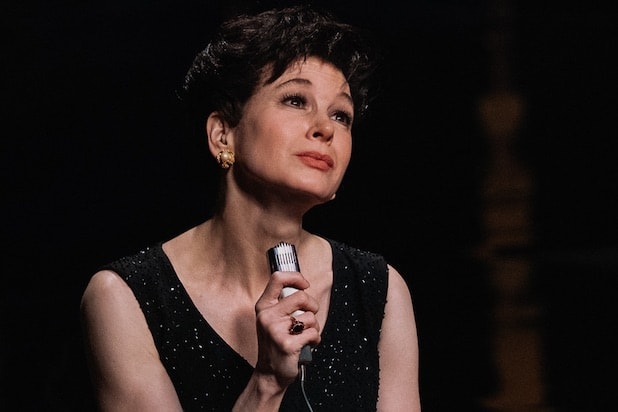How to Write a Biopic: Pitfalls Screenwriters Should Avoid
From BOHEMIAN RHAPSODY to JUDY, the biopic is a seriously popular modern movie genre. But having such a concrete story to work from in the telling of someone’s life isn’t always as carefree as it seems.
With the number of biopics increasing, also on the rise are the clichés and easy options for the screenwriters writing them. Familiar patterns have emerged that don’t always feel the most effective ways for creating drama around the famous protagonist.
In screenwriting, the biopic can be a great way to test your skills – taking a ready made story and putting it through the grinder of a feature length script.
So what are the key points to remember when coming to write a biopic?
Make Your Biopic More Than a Wikipedia Page
The research for your biopic might come in many different forms.
It might be detailed and exhaustive before you start, with you spending your time in libraries or archives.
Or you might be learning as you write, finding as much as you can online or in books, youtube clips or documentaries.
Vitally important to remember though is that you are writing drama. Too often writers fall back on the luxury of having a ready-made plot in the facts of the protagonist’s life.
Where is the drama in your biopic?
A film has to be more than just a comprehensive overview of the protagonist’s life from A to Z. In researching factual events it can be seductive to merely feature and represent them.
However, as a screenwriter it is your job to find and convey drama. Otherwise, what is the difference between your representation of the facts and the Wikipedia page doing the same thing?
So what are the potential ways of avoiding falling into such traps?
- Search for both the external and internal conflict for the protagonist.
- Don’t feel the pressure to get across every fact. Pick and choose the moments that feel important and relevant to the story you are trying to tell.
- Have a driving purpose. What’s the point of this biopic? What’s the movie theme? What does the story of their life have to say thematically?
- If the character was not famous, would this story and the way you are telling it be interesting?
Your decision to dramatise your famous protagonist’s life should be justified by drama being present.
What distinguishes your dramatisation from a potential documentary about the same subject?
Asking these questions may help you find the drama and conflict present in your chosen character’s story and provide the way to dramatic, cinematic storytelling.
Judy Trailer #2 (2019) | Movieclips Trailers
Don’t Make Your Main Character the Only Character
Your chosen protagonist might be a real force of nature like Martin Luther King or someone who personifies charisma like Judy Garland.
However, no man or woman is an island.
- Who are the characters that surrounded your protagonist?
- Are those characters well known too?
- Are they unheralded but essential presences lurking in the background of the protagonist’s life?
Whilst a biopic is a great way of getting to grips with a strong lead character, it can also be a great way of exploring subsidiary characters.
These characters might have less time spent on them. However, the time they get they make the most of. Such characters will typically play a decisive role in the main character’s life. For example, think McCartney to Lennon or George W.Bush to Dick Cheney.
In a prestige picture these supporting characters can also provide important roles for character actors who excel outside the lead role.
- Is there a role within your biopic that has enough meat for an actor to get into. One that could get them a supporting role nomination?
It might seem cynical to think so long term.
But really it’s just about putting meat on the bones of your script. This meat will give the creative team, and consequently audiences, something to get their teeth into.
There might be a juicy main meal inherent in the story but who can be the delicious sides to compliment the main dish?
Don’t Overthink Your Audience
Your famous protagonist might come with their own ready-made audience.
- They might be the lead singer of a famous band, with a dedicated and loyal following (think Freddie Mercury and Queen).
- They might be a well known politician or public figure (think Dick Cheney or Neil Armstrong).
Whatever your subject’s fame or popularity, you need to find a balance in not patronising the audience in telling them about the character and not taking what they might know for granted.
You run the risk of straying into Wikipedia territory again if you stick too rigidly to getting across the facts of the character’s life. However, you also want to make the story informative for those seeking to learn about this character.
So what to look out for and potentially avoid?
- Too many in-jokes or references that only the most dedicated fans will understand. One or two of these sly references are fine. However, overwhelm your script with such references and you risk alienating many potential audiences.
- Overly expositional dialogue or scenes where the sole purpose is to inform of a key moment or event. Such moments and events might be crucial to the character’s life but they also need to be moving the story on at all times.
- Relying on the perceived power and popularity of the subject at hand.
On this last point, for example, a song might be beloved and powerful. But hearing a version performed by the actor playing the singer is not the same as hearing the actual thing.
- So always think – what is this moment revealing to the audience about the character that real life footage cannot?
- What can the actor get across to an audience that isn’t present in real life footage of a performance?
Rocketman (2019) - Official Trailer - Paramount Pictures
Don’t Take Your Structure for Granted
The three act structure feels particularly appealing when it comes to depicting someone’s life. After all, a life always has a beginning, a middle and an end.
And indeed, this linear approach can certainly be effective within film.
However, don’t take it for granted that your character’s life has to be told in such a linear way. There might be an alternative screenplay structure that is more potent in conveying the character’s life and experiences.
For example:
- Could you start at the end of the character’s life and work backwards?
- Would flashbacks between the past and present be effective in the telling of the story?
- Would using a fourth-wall break so the character can narrate to the audience be effective?
If employing an alternative structure just make sure there is thematic justification for using it.
- For example, if jumping back and forth from the present to the past, are the two equally matched dramatically speaking?
- Or if using a fourth-wall break, does potential narration and intimacy with the audience reveal something important about the character?
Biopics With a Difference
Whilst many biopics seem to follow a familiar formula, there are those that break the mould.
Let’s look briefly at three examples of biopics that do something a little different within the genre…
‘Can You Ever Forgive Me?’
Melissa McCarthy takes the lead role in the 2018 bio about writer Lee Israel, Can You Ever Forgive Me? The film is a snapshot of biographer Lee Israel’s life and of a time which came to define her.
When down on her luck as a writer, Lee turns to forging famous letters. In this she finds a lucrative new source of income in the face of mounting bills.
- The film doesn’t need to give a whole overview of Lee Israel’s life, as so much is said by catching her in this difficult and pivotal time in her life.
- We are given clues as to her background, life and career without having to see these things represented literally.
Just the messy state of her apartment gives us a clue into the life she has been living as well as to her mental state.
The piles of books, the way she neglects her health, her relationship with her cat. These behaviours tell us a great deal about her life.
‘I’m Not There’
Todd Haynes’ 2007 biography of Bob Dylan, I’m Not There, is possibly the most unconventional biopic ever made. Six different actors, from Christian Bale to Cate Blanchett, play the famous musician.
- These differing depictions of Dylan are never intended to be literal. Instead, they seek to represent different facets of his public persona.
- Often these versions of Dylan aren’t explicitly highlighted as being him but hinted as being Dylan like characters.
In this bold approach, the film aims to say something about Bob Dylan’s storytelling, as well as about fame and the public persona of an artist.
The film shows just how far from a literal telling of a person’s life a biography can stray and yet still say something insightful about that person.
‘The Social Network’
David Fincher and Aaron Sorkin‘s 2010 film The Social Network, about the genesis of Facebook, is a biopic responding to the place that Facebook holds in contemporary culture.
Even though Facebook has moved on substantially since The Social Network premiered, the film perfectly captures a moment in time within American culture. The portrayal of Mark Zuckerburg is a cipher for this moment in time.
- The film doesn’t waste time giving us much of an idea of Mark’s backstory. We meet and see Mark when we need to.
- The portrayal of Mark sums up a generation of Silicon Valley entrepreneurs, rather than being strictly factual and linear about Mark’s life.
Whilst this provoked some notable objections, it perhaps explains why the film is still so resonant even if its relevance has faded.
The film asserts that Mark Zuckerburg didn’t just found Facebook in 2004, he is 2004.
In Conclusion
Yes, a biopic is an attractive prospect for a screenwriter. It comes with a readymade story, a strong protagonist and an in-built audience.
However, these attributes can often obscure the essentials elements of writing a script in the first place. These essentials are, chiefly, finding and representing drama.
As you’re getting to know your subject intimately, don’t just fall back on the obvious characteristics or actions that make them stand out.
Look closer and find the subtext beneath their famous personas and the drama that makes them tick.
- What did you think of this article? Share it, Like it, give it a rating, and let us know your thoughts in the comments box further down…
- Struggling with a script? Story analysis is what we do, all day, every day…check out or range of services for writers & filmmakers here.
Get *ALL* our FREE Resources
Tackle the trickiest areas of screenwriting with our exclusive eBooks. Get all our FREE resources when you join 60,000 filmmakers on our mailing list!



